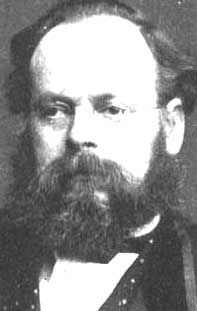Samuel Plimsoll
| Samuel Plimsoll | |
|---|---|
 |
|
| Born |
10 February 1824 Bristol |
| Died | 3 June 1898 (aged 74) |
| Nationality | British |
| Occupation | MP; social reformer |
| Known for | Plimsoll line |
Samuel Plimsoll (10 February 1824 – 3 June 1898) was an English politician and social reformer, now best remembered for having devised the Plimsoll line (a line on a ship's hull indicating the maximum safe draft, and therefore the minimum freeboard for the vessel in various operating conditions).
Samuel Plimsoll was born in Bristol and soon moved to Whiteley Wood Hall, Sheffield, also spending part of his childhood in Penrith, Cumberland. Leaving school at an early age, he became a clerk at Rawson's Brewery, and rose to be manager.
In 1853, he attempted to become a coal merchant in London. He failed and was reduced to destitution. He himself told how for a time he lived in a common lodging for seven shillings and two pence a week.
Through this experience, he learnt to sympathise with the struggles of the poor, and when his good fortune returned, he resolved to devote his time to improving their condition.
His efforts were directed especially against what were known as "coffin ships": unseaworthy and overloaded vessels, often heavily insured, in which unscrupulous owners risked the lives of their crews.
In 1867, Plimsoll was elected as the Liberal Member of Parliament for Derby, and endeavoured in vain to pass a bill dealing with the subject of a safe load line on ships. The main problem was the number of ship-owning MP's in Parliament.
In 1872, he published a work entitled Our Seamen, which became well known throughout the country. Accordingly, on Plimsoll's motion in 1873, a Royal Commission was appointed, and in 1875 a government bill was introduced, which Plimsoll, though regarding it as inadequate, resolved to accept.
On 22 July, the Prime Minister, Benjamin Disraeli, announced that the bill would be dropped. Plimsoll lost his self-control, applied the term "villains" to members of the House, and shook his fist in the Speaker's face.
Disraeli moved that he be reprimanded, but on the suggestion of Lord Hartington agreed to adjourn the matter for a week to allow Plimsoll time for thought.
...
Wikipedia
